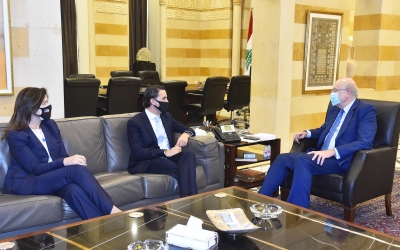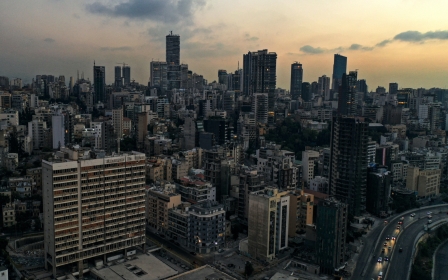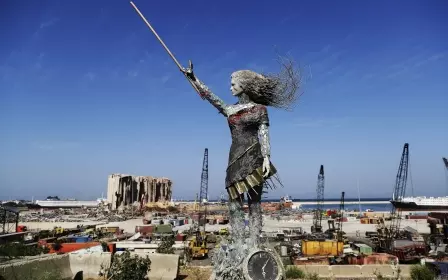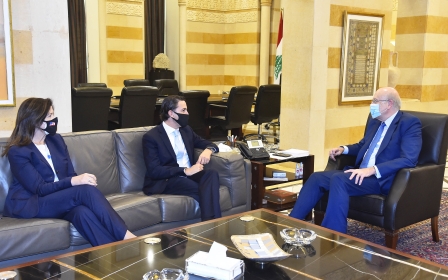'False': US denies brokering energy deal between Israel and Lebanon
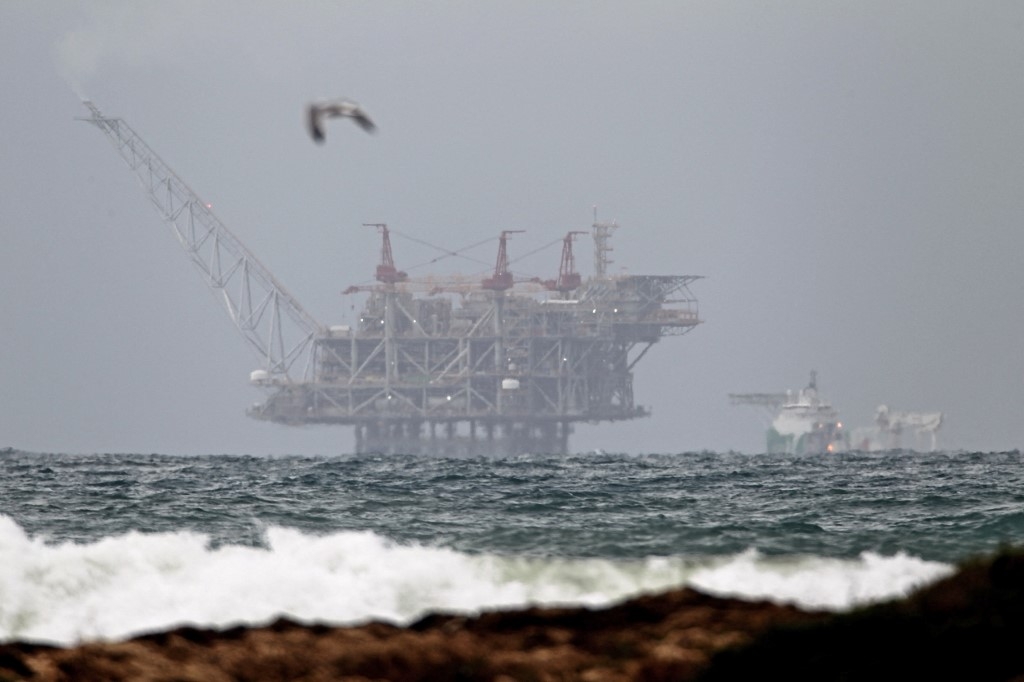
The United States has denied Israeli media reports that it facilitated an agreement for Israel to supply natural gas to crisis-stricken Lebanon.
The State Department's Bureau of Near Eastern Affairs said on Twitter on Sunday that "media reports that the United States has brokered an energy deal between Israel and Lebanon are false".
The comments appeared after Israel's Channel 12 News reported that gas from the country's massive Leviathan field would be shipped to Lebanon via Syria and Jordan in a deal brokered by Amos Hochstein, Washington's special envoy and coordinator for international energy affairs.
The Leviathan offshore natural gas field was opened in 2019, turning Israel into an energy hub for the region. The country already has agreements to supply Jordan and Egypt with gas and has been considering building new pipelines as energy costs have risen.
New MEE newsletter: Jerusalem Dispatch
Sign up to get the latest insights and analysis on Israel-Palestine, alongside Turkey Unpacked and other MEE newsletters
Still, news of a potential deal between Israel and Lebanon stoked immediate controversy in Lebanon, where Hezbollah is the dominant political force. Israel and Lebanon fought a deadly war in 2006 and clashes along their border are common.
Earlier on Sunday, the Lebanese Ministry of Energy and Water issued a "categorical denial" of the report, labelling it "totally and completely untrue", adding that an agreement brokered last year by the US "clearly and explicitly stipulates that the gas should come from Egypt".
Lebanon is reeling under a devastating financial crisis and has only a few hours of electricity per day.
The US negotiated a deal last year that would see Egyptian natural gas shipped to Lebanon via the Arab Gas pipeline with Jordan and Syria as transit countries. The plan was intended to offer an alternative to a Hezbollah effort to transport Iranian fuel to the country.
Last week, the US ambassador to Lebanon, Dorothy Shea, met Lebanese Prime Minister Najib Mikati to reassure the government it would not be subject to US sanctions for purchasing gas shipped through sanctioned Syria.
Middle East Eye delivers independent and unrivalled coverage and analysis of the Middle East, North Africa and beyond. To learn more about republishing this content and the associated fees, please fill out this form. More about MEE can be found here.


